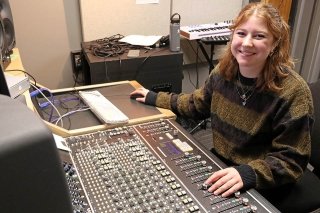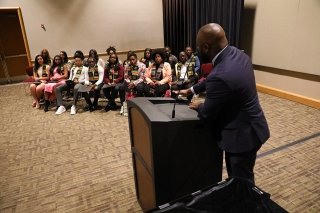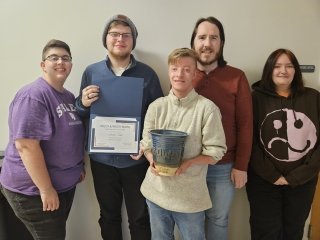Service learning with lasting impact
Posted:
Some of the most memorable spring breaks end up way far off course than originally planned. Endorse the unexpected, some might say. This was certainly the case for one Bloomsburg University student this spring.
Amanda Kline, a medical imaging major, spent her week in Cusco, Peru, on a service-learning trip with seven fellow Huskies volunteering with MEDLIFE — non-profit organization that partners with low-income communities in Latin America and Africa to improve their access to medicine, education, and community development projects.
This was Kline’s second service-learning trip. She completed one in Lima last year. This experience had such an impact on her she decided to do it again this year.
“The why behind this trip is simply giving as many communities in South America access to healthcare that do not currently have it.” Kline explains what drives students to participate.
Her week consisted of traveling around different communities in a mobile clinic and helping patients who don’t have access to healthcare. There were multiple types of doctors there to help with any health issue that is needed.
Kline explains how her favorite station to work for “is tooth brushing, because we get to give each kid a toothbrush and teach them how to take care of their teeth properly. They get so excited!”
These trips give students like Kline the opportunity to get real-life experience in the medical field and truly know they’re making a difference.
“I enjoy traveling to new places and experiencing different cultures, but above all I love serving and making an impact in the lives of other people,” Kline said. “MEDLIFE provided me with a perfect outlet to tie all of these together and improve the healthcare experience.”
Due to COVID-19 being labeled a global pandemic midway through their trip, it changed things for them. Some of the group left Peru early, and the rest including Kline, were able to complete their week. Luckily, they made it on their plane before the borders were shut down.
But it did change the way they had to handle their care. They needed to transition to constantly wearing masks and gloves while treating patients.
“Children especially tend to be more scared, because we don’t look like them or speak the same language, so the masks definitely didn’t help with that,” Kline said. “… but I found other non-verbal ways to make them comfortable to make up for it which was pretty cool.”
She remained healthy and made it home safely. The remainder of the group went on to quarantine back home to make sure they kept others safe as well.
“My main takeaway from this experience was simply not to take for granted some of the basic needs that are met for me daily that others do not have,” Kline said. “It really changes your perspective and helps you to appreciate the little things!”



